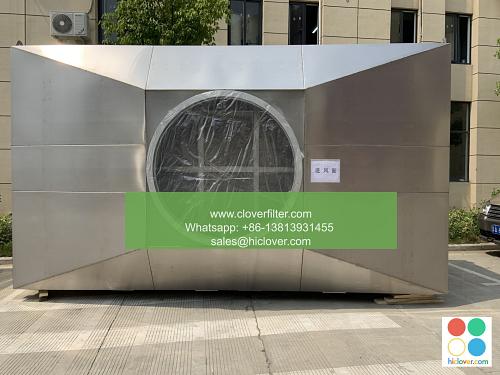The Environmental Benefits of Air Filter Regulations: A Valuation

The implementation of air filter regulations has been a highly debated topic in recent years, with many experts advocating for stricter controls on air pollution. One of the primary reasons for this push is the significant environmental benefits that can be achieved through the effective regulation of air filters. In this article, we will explore the various environmental benefits of air filter regulations, including improved air quality, reduced greenhouse gas emissions, and enhanced public health.
Reducing Air Pollution through Stricter Regulations
Air pollution is a major environmental concern, with particulate matter, nitrogen oxides, and volatile organic compounds being some of the most harmful pollutants. The use of high-efficiency air filters can significantly reduce the amount of these pollutants that are released into the atmosphere. By regulating the use of air filters, governments can ensure that industries and individuals are using the most effective filters available, resulting in cleaner air and a reduction in air pollution-related health problems.
Valuation of Environmental Benefits
The environmental benefits of air filter regulations can be valued in several ways, including:
* Cost-benefit analysis: This involves comparing the costs of implementing and enforcing air filter regulations with the benefits of reduced air pollution.
* Willingness-to-pay: This involves assessing how much individuals are willing to pay for improved air quality and reduced health risks.
* Contingent valuation: This involves estimating the value of environmental benefits through surveys and other research methods.
Application Areas for Air Filter Regulations
Air filter regulations can be applied in a variety of settings, including:
* Industrial facilities: Regulations can be implemented to ensure that industries are using the most effective air filters available to reduce emissions.
* Vehicle emissions: Regulations can be implemented to ensure that vehicles are equipped with effective air filters to reduce emissions.
* Building ventilation systems: Regulations can be implemented to ensure that buildings are equipped with effective air filters to improve indoor air quality.
* Residential areas: Regulations can be implemented to ensure that residents are using effective air filters in their homes to improve indoor air quality.
Key Technologies for Air Filter Regulations
Several key technologies are available to support air filter regulations, including:
* HEPA filters: High-efficiency particulate air filters that can capture 99.97% of particles as small as 0.3 microns.
* Activated carbon filters: Filters that use activated carbon to capture gases and odors.
* UV air purifiers: Devices that use ultraviolet light to kill bacteria and other microorganisms.
* Smart air filters: Filters that can detect and respond to changes in air quality.
Conclusion
In conclusion, the environmental benefits of air filter regulations are significant, and can include improved air quality, reduced greenhouse gas emissions, and enhanced public health. By implementing and enforcing effective air filter regulations, governments can reduce air pollution, improve public health, and protect the environment. As technology continues to evolve, we can expect to see even more effective air filters and innovative solutions to air pollution problems. It seems like you forgot to include the actual prompt. Could you please provide more details or specify what you would like to talk about or ask? I’m here to help with any questions or topics you have in mind!

